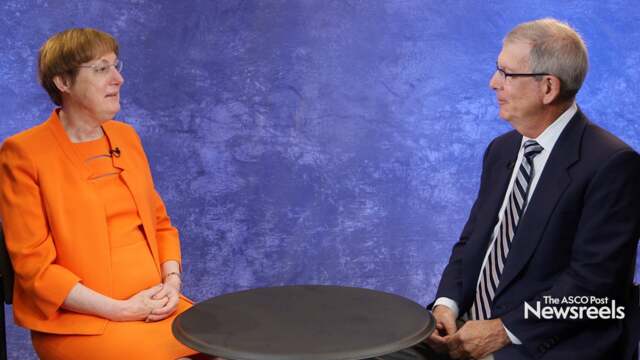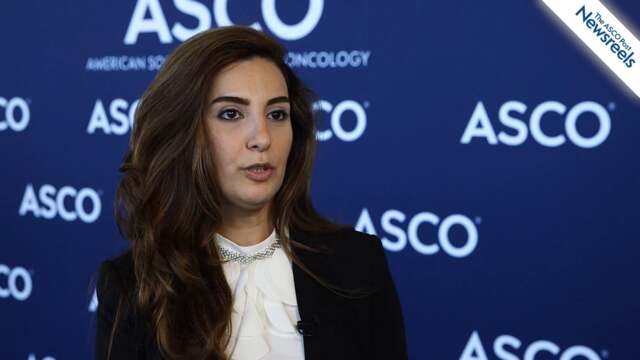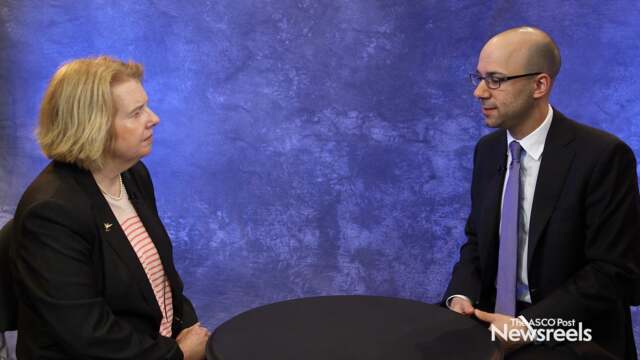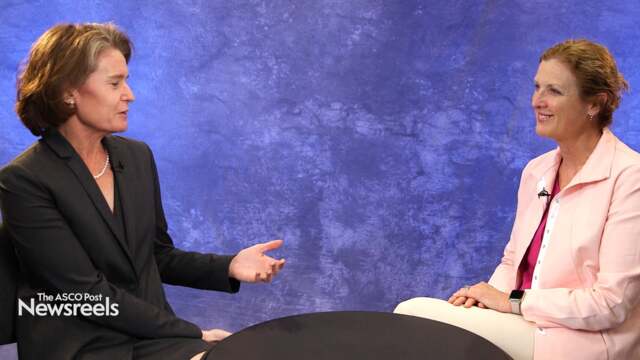Tony Mok, MD, on NSCLC: Results From the ARCHER 1050 Trial
2018 ASCO Annual Meeting
Tony Mok, MD, of the Chinese University of Hong Kong, discusses study findings on dacomitinib vs gefitinib for first-line treatment of advanced non–small cell lung cancer, a final overall survival analysis.
Allen S. Lichter, MD, ASCO’s former Chief Executive Officer, talks with Nancy E. Davidson, MD, of Fred Hutchinson Cancer Research Center, the 2018 recipient of the Visionary Leader Award, named for Dr. Lichter.
Rita Elias Assi, MD, of The University of Texas MD Anderson Cancer Center, discusses the impact of next-generation sequencing on treatment selection in acute myeloid leukemia (Abstract 103).
Geoffrey R. Oxnard, MD, of Dana-Farber Cancer Institute, discusses genome-wide sequencing for early-stage lung cancer detection from plasma cell–free DNA (Abstract LBA8501).
Ursula A. Matulonis, MD, of Dana-Farber Cancer Institute, and Daniel J. Margul, MD, PhD, of Northwestern University, discuss the outcomes and costs of open, robotic, and laparoscopic radical hysterectomy for stage IB1 cervical cancer (Abstract 5502).
Elizabeth A. Mittendorf, MD, PhD, of Dana-Farber/Brigham and Women’s Cancer Center, and Lisa A. Carey, MD, of the University of North Carolina, discuss the impact of new phase III findings on chemoendocrine treatment vs endocrine treatment alone in hormone receptor–positive, HER2-negative, node-negative breast cancer (Abstract LBA1).





